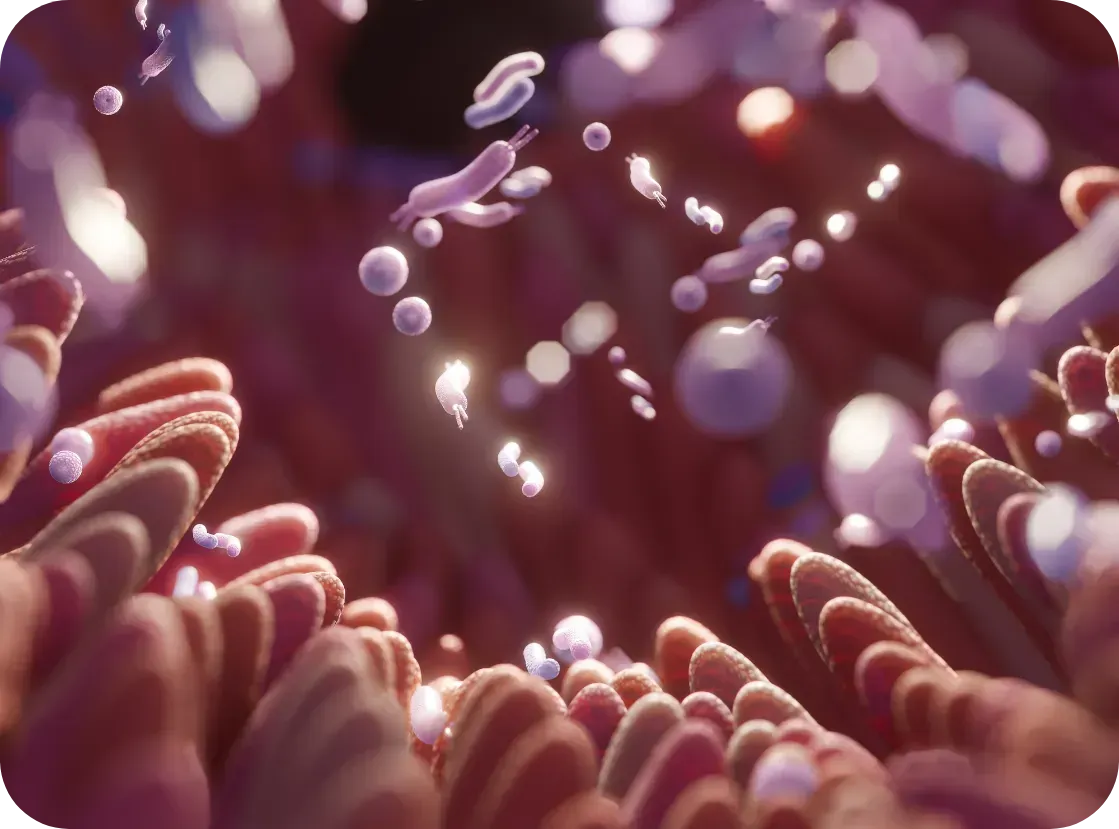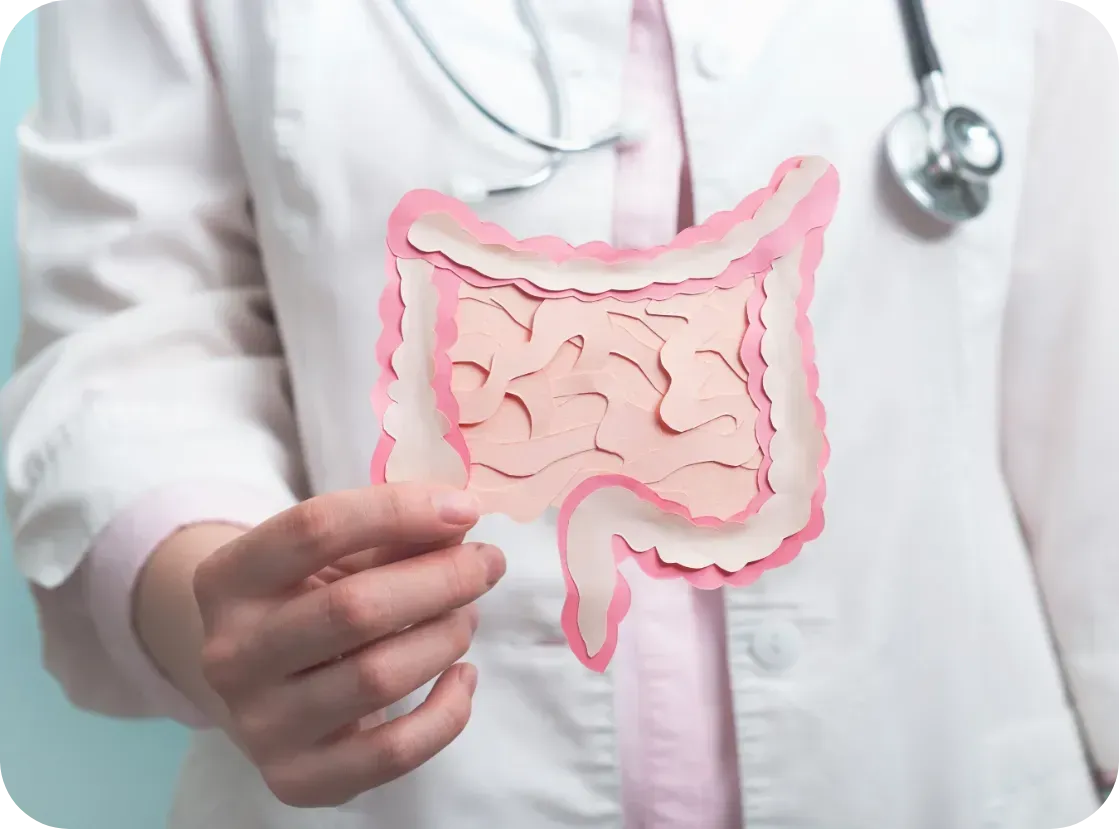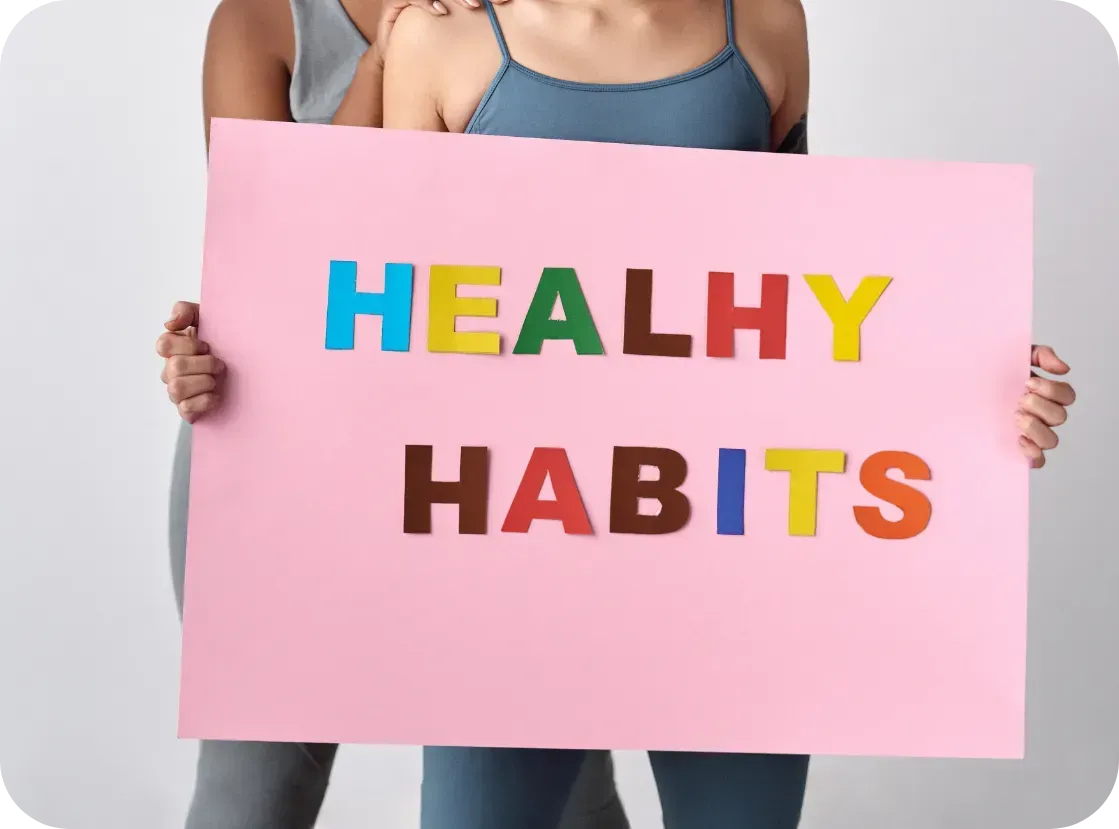GUT FEELINGS: The Hidden Link Between Gut Health and Hormonal Imbalance
By Our Daughters Foundation
GUT FEELINGS: The Hidden Link Between Gut Health and Hormonal Imbalance
By Our Daughters Foundation
1. The Gut Microbiome: Your Internal Ecosystem
Your gut isn’t just a tube for digesting food. It’s home to trillions of bacteria that:
• Help break down food
• Make key nutrients (like B vitamins)
• Train your immune system
• And — importantly — regulate estrogen levels
This bacterial community is called the gut microbiome, and when it’s healthy and diverse, it supports balanced hormones. But when the microbiome is out of balance — a condition called dysbiosis — problems can arise.

2. Estrobolome: The Gut’s Hormone Filte
Inside the gut, a specific group of bacteria known as the estrobolome helps process estrogen. These bacteria produce enzymes (like beta-glucuronidase) that influence how much estrogen is reabsorbed into the bloodstream versus excreted.
When the estrobolome is overactive or underactive, it can lead to:
• Excess circulating estrogen → linked to endometriosis, fibroids, PMS, and breast tendernes
• Too little estrogen → contributing to mood changes, bone loss, and vaginal dryness
So a disrupted gut can directly amplify hormonal imbalances.
3. Inflammation: The Common Denominator
Both gut dysbiosis and endometriosis are associated with chronic inflammation. When the gut barrier is weakened (a condition sometimes called “leaky gut”), it allows inflammatory molecules to pass into the bloodstream. This triggers an immune response — and in people with endometriosis or PCOS, it can worsen pelvic pain, fatigue, and hormonal chaos.

4. What the Research Says
While this field is still developing, early studies have found:
• Women with endometriosis often have altered gut microbiomes compared to those without the condition. [Study: Ata et al., 2019, Scientific Reports]
• A high-fiber, plant-rich diet may help support a more balanced gut flora and improve estrogen metabolism. [Study: Fuhrman et al., 2004, Journal of Nutrition]
• Some researchers are exploring probiotic therapy as a future tool for managing hormone-related conditions.
5. What Can You Do?
You can’t fully control your hormones — but you can support your gut.
Here are some gut-friendly, hormone-supporting habits:
• Eat more fiber: vegetables, fruits, legumes, and seeds
• Avoid excessive sugar and processed foods
• Include fermented foods: yogurt, kefir, sauerkraut, kimchi
• Consider a probiotic — talk to your provider first
• Manage stress — cortisol (the stress hormone) also affects gut balance
• Support liver detoxification (which works with your gut to clear estrogen): eat cruciferous vegetables like broccoli and cauliflower

Final Thoughts
The gut isn’t just about digestion — it’s a key player in how your body handles hormones, pain, and inflammation.
If you’re struggling with endometriosis, PCOS, or unexplained hormone symptoms, supporting your gut might be an empowering place to start.
Want to Learn More?
Here are some helpful articles and research:
• The Gut Microbiome and Estrogen Metabolism – NIH
https://www.ncbi.nlm.nih.gov/pmc/articles/PMC6471213/
• Gut Microbiota and Endometriosis – Scientific Reports
https://www.nature.com/articles/s41598-019-39645-2
• How the Gut Influences Hormones – Integrative Medicine Journal
1. The Gut Microbiome: Your Internal Ecosystem
Your gut isn’t just a tube for digesting food. It’s home to trillions of bacteria that:
• Help break down food
• Make key nutrients (like B vitamins)
• Train your immune system
• And — importantly — regulate estrogen levels
This bacterial community is called the gut microbiome, and when it’s healthy and diverse, it supports balanced hormones. But when the microbiome is out of balance — a condition called dysbiosis — problems can arise.

2. Estrobolome: The Gut’s Hormone Filte
Inside the gut, a specific group of bacteria known as the estrobolome helps process estrogen. These bacteria produce enzymes (like beta-glucuronidase) that influence how much estrogen is reabsorbed into the bloodstream versus excreted.
When the estrobolome is overactive or underactive, it can lead to:
• Excess circulating estrogen → linked to endometriosis, fibroids, PMS, and breast tendernes
• Too little estrogen → contributing to mood changes, bone loss, and vaginal dryness
So a disrupted gut can directly amplify hormonal imbalances.
3. Inflammation: The Common Denominator
Both gut dysbiosis and endometriosis are associated with chronic inflammation. When the gut barrier is weakened (a condition sometimes called “leaky gut”), it allows inflammatory molecules to pass into the bloodstream. This triggers an immune response — and in people with endometriosis or PCOS, it can worsen pelvic pain, fatigue, and hormonal chaos.

4. What the Research Says
While this field is still developing, early studies have found:
• Women with endometriosis often have altered gut microbiomes compared to those without the condition. [Study: Ata et al., 2019, Scientific Reports]
• A high-fiber, plant-rich diet may help support a more balanced gut flora and improve estrogen metabolism. [Study: Fuhrman et al., 2004, Journal of Nutrition]
• Some researchers are exploring probiotic therapy as a future tool for managing hormone-related conditions.
5. What Can You Do?
You can’t fully control your hormones — but you can support your gut.
Here are some gut-friendly, hormone-supporting habits:
• Eat more fiber: vegetables, fruits, legumes, and seeds
• Avoid excessive sugar and processed foods
• Include fermented foods: yogurt, kefir, sauerkraut, kimchi
• Consider a probiotic — talk to your provider first
• Manage stress — cortisol (the stress hormone) also affects gut balance
• Support liver detoxification (which works with your gut to clear estrogen): eat cruciferous vegetables like broccoli and cauliflower

Final Thoughts
The gut isn’t just about digestion — it’s a key player in how your body handles hormones, pain, and inflammation.
If you’re struggling with endometriosis, PCOS, or unexplained hormone symptoms, supporting your gut might be an empowering place to start.
Want to Learn More?
Here are some helpful articles and research:
• The Gut Microbiome and Estrogen Metabolism – NIH
https://www.ncbi.nlm.nih.gov/pmc/articles/PMC6471213/
• Gut Microbiota and Endometriosis – Scientific Reports
https://www.nature.com/articles/s41598-019-39645-2
• How the Gut Influences Hormones – Integrative Medicine Journal
Join Us: Make a Difference Today
Your support can transform lives. Every donation helps us fund research, advocate for better care, and provide essential grants to women facing debilitating conditions.
Join Us: Make a Difference Today
Your support can transform lives. Every donation helps us fund research, advocate for better care, and provide essential grants to women facing debilitating conditions.

My Story: Lisa Tierney-Keogh
Personal Stories: “I’ve Been Branded a Hypochondriac So Many Times”
In a powerful piece published by The Irish Times on July 13, 2025, writer Lisa Tierney-Keogh shares the raw truth of living with endometriosis—a disease that affects an estimated 1 in 10 women. But for Lisa, the real pain wasn’t just the physical suffering—it was the decades-long silence, disbelief, and dismissal by the healthcare system.
“With all the health problems I’ve endured since childhood, I’ve been branded a hypochondriac so many times… I was gaslit into believing that my body was fine—but that I, Lisa, was the problem.”
Lisa describes how, despite agonizing symptoms—pain that radiated to her back, legs, shoulders, and even her diaphragm—she spent nearly 30 years without a diagnosis. Even after her first surgery, she was told “there was just one spot” of endometriosis. But the pain came back worse than ever.
“I couldn’t walk more than 15 minutes. I couldn’t sleep. I was told by one doctor that I ‘think I’m in constant pain.’ That’s when I knew I was in trouble.”
Her story is not unique. For many women, that diagnosis delay comes with job loss, infertility, financial strain, and psychological trauma. This story is about Lisa's experience in Ireland, but this story is common in every country including the US. Average times for diagnosis are very similar in the US, and we still do not have excision specialists in every state. Treatment also can come with a very high price tag because often insurance does not cover the costs of surgery or treatments like Pelvic Floor PT that are shown to give some relief.
A quick summary of Lisa's story:
1. A Burden Hidden in Plain Sight
Endometriosis affects about 1 in 10 Women individuals globally—and many suspect it’s even more common—yet in Ireland the average diagnosis delay is 8–10 years. The author, Lisa Tierney‑Keogh, waited an astonishing 28 years for confirmation
The NHS classifies it among the top 20 most painful conditions, yet research funding and clinical resources remain deeply inadequate
2. A Life of Unbearable Pain—And Distrust
Symptoms extend far beyond pelvic cramps: they include “leg and back pain, shoulder pain, fertility issues, painful bowel issues, headaches, brain fog, chronic fatigue, shortness of breath…”
As a child and teen, Lisa was repeatedly dismissed:
“With all the health problems I've endured since childhood, I've been branded a hypochondriac so many times, been gaslit into believing…my body was fine, but I, Lisa, was the problem.”
3. Diagnosis and the Broken System
The path to diagnosis is nearly always surgical (laparoscopy), but Ireland’s system is crippled by understaffed clinics and long OR waitlists
Even when undergoing surgery in early 2020, Lisa was told only “one spot of endometriosis” was found and ablated—but the disease returned with a vengeance
4. Pain Ignored—or Gaslit
After surgery, Lisa's pain intensified drastically. She couldn’t walk more than 15 minutes or sleep through the night, yet medical communication described her as thinking she’s in constant pain
“When I’m cc’d on a letter that includes the sentence, ‘She thinks she’s in constant pain,’ I realise I’m in trouble.”
— Lisa Tierney‑Keogh
Read Lisa's full story from the Irish Times by clicking the link below:
“Life with endometriosis: I've been branded a hypochondriac so many times” – The Irish Times
